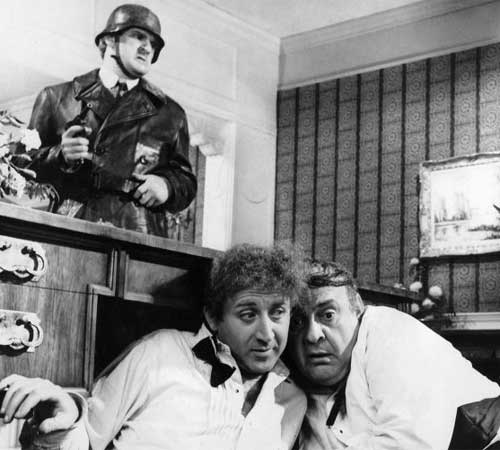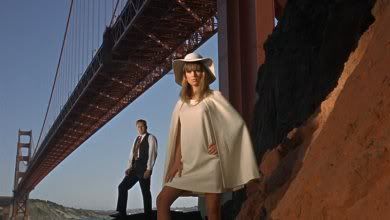
Compiled by Noah Mallin
In an ongoing cultural project here at POSAS I'm delving into the past to bring flashbacks from pop culture's musty byways. We're starting 40 years ago with 1968 and the best movies of that year. They are in no order except the arbitrary whims of yours truly. I have of course called in friend of the blog Cletus to weigh in as well. To the list!
1. The Producers
The story of The Producers is not unlike…well… the story of The Producers. The film flopped on its original release but subsequently garnered a Supporting Actor Oscar nomination for Gene Wilder and a win for writer/director Mel Brooks in the screenplay category. It has since gone on to great success as a hit Broadway musical and a not-so-hit film version of the play. The difference is that, as far as anyone knows, Brooks didn't plan it this way.
Zero Mostel plays Max Bialystock, seedy down-on-his-luck producer who resorts to seducing old ladies to fund his shows. Gene Wilder is nebbishy Leo Bloom, the accountant who muses that one could actually make more money from a flop than a hit. From that seed comes Bialystock’s final solution: a Broadway musical called Springtime For Hitler.
2. Planet of The Apes
Planet of The Apes is one of the archetypal sci-fi as social commentary films. In a year when it seemed the world was falling apart, riven by assassinations and wars and riots, Charlton Heston lands on a faraway planet where the men are speechless beasts and the apes are in charge. Franklin Schaffner’s film was a massive hit, in no small part because the action and the spectacular visuals allow the socio-political implications to remain strictly optional – at least until
the unforgettable ending.

3. Petulia
Richard Lester’s Petulia, shot by Nicolas Roeg, is an all-but-forgotten gem. The film is a time –fragmented dark romantic comedy that is also a cutting dissection of consumerist American society at the height of the Vietnam War. The quick-cuts and flashy editing are of the time but can also be seen as influences on directors both good (Almodovar, Soderburg) and bad (Michael Bay). Julie Christie is at her best as the offbeat title character, looking for deeper meaning in a shifting world, George C. Scott is her older lover and Richard Chamberlain is deeply creepy as her husband.
The Vietnam War on people’s televisions contrasts with their Great Society surroundings and San Francisco in all it’s counter-culture fault lines. There is also some notable footage of both Big Brother and The Holding Company and The Grateful Dead performing live.
4. Once Upon a Time in The West
Sergio Leone finally got a big American budget to match his John Ford-esque ambitions with Once Upon a Time in The West. A big long epic, it’s a film stuffed with the contrast between the tiny detail and the sweeping long view that are the hallmark of Leone’s style. There’s no Eastwood here as in Leone’s three previous spaghetti western classics but Henry Fonda is superb cast against type as the heavy, versus Charles Bronson as Leone’s prototypical existential hero.
5. Night of The Living Dead
George Romero’s Night of The Living Dead is the low-budget flipside to the big-budget ’68 hit Planet of The Apes. Like Apes, Night of The Living Dead is a genre film that also packs a great deal of social commentary into its wrapper. It’s also the blueprint for the modern zombie film as carried on by the likes of 28 Days Later, among others.





No comments:
Post a Comment